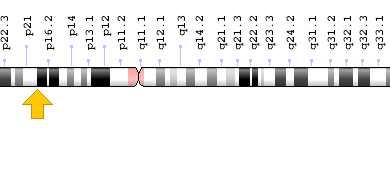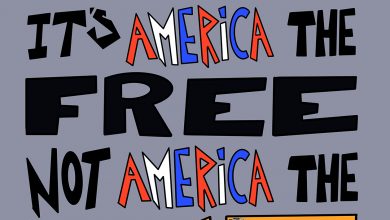The Golden Compass – Reading Selection
UPDATED
Here’s an interesting headline I saw today:
In adapting Philip Pullman’s novel, New Line is in a tight spot between the book’s true-believer following and those who find it anti-religious.
I just started re-reading The Golden Compass (I read it a while back but didn’t remember more than the gist). Has anyone else gotten started? I was wondering what they’d do in the movie, seeing that the bad guys in the book are essentially the Catholic Church. Of course, the Church is some Catholic activists are predictably pissed off:
Earlier this month, [conservative, Catholic League President William Donahue] called on Christians to boycott the movie because it will “seduce” parents into buying Pullman’s “pro-atheist” book.
The whole article is long and interesting. Some fans are also planning to boycott the movie for a different reason. They’ve heard that the script departs from the book too much. All I can say is, “What do you expect?” Movies never, hardly ever are as good as the book. Not even close. Not even LOTR, which I think were great films. It just doesn’t happen.(OK, so some commenters pointed out sucky books that were made into decent films.)
I remember in Chocolat that the creepy guy in the book was the priest, and in the movie they changed him to the Mayor and gave the town a mild-mannered, young, harmless priest. I thought it made the movie much less funny and less poignant than the book. But I still liked the film. (Well, it had Johnny Depp, what’s not to like?)
It seems that they’ve done the same thing in this film:
In the film, however, there’s no mention of the Church or Catholicism. The bad guys are known only as the Magisterium, which in fact is the term the Roman Catholic Church uses to describe its body charged with interpreting “the Word of God.” Weitz, who described himself on one fan site as “a lapsed Catholic crypto-Buddhist,” explained those changes to fans in 2004 as a way to allay the studio’s early concern that the “perceived anti-religiosity” of “His Dark Materials” would make the franchise “an unviable project.”
Kind of spoils the whole thing, doesn’t it?
Pullman, apparently, has said the books are not anti-Catholic. They take place in an alternate universe after all. I think perhaps the Church’s discomfort is the same problem they had with the DaVinci Code: They don’t understand the meaning of the word “fiction.” (Considering what they do belieive, that’s not really surprising.) Here’s what the author did have to say:
In a 2004 post still featured on his website Philip-Pullman.com, he wrote that his main quarrel is with the “literalist, fundamentalist nature of absolute power” and “those who pervert and misuse religion, or any other kind of doctrine with a holy book and a priesthood and an apparatus of power that wields unchallengeable authority, in order to dominate and suppress human freedoms.”
NEW: Here’s another interesting article with some choice quotes:
Pullman’s book trilogy is the story of “a battle against the church and a fight to overthrow God,” BBC News reported. The Guardian, a British newspaper, goes even further to describe the books as “metaphysical fantasies encompassing parallel worlds, the death of God and the fall of man ….
“One of the [book] series’ main themes — the rejection of organized religion and in particular the abuse of power within the Catholic Church — is to be watered down,” according to the Telegraph, a newspaper in the U.K. “But when the film is released in December the Magisterium will be shown as a critique of all dogmatic organizations, thereby avoiding a religious backlash.”
(Well, my last big freelance project is just about wrapped up, so with any luck, I’ll be back to my blabbermouth-blogging self soon. I was going to nag Rebecca about updating the “what we’re reading” link on the side of the page until I saw the photo of her black eye. Ouch!)





"Movies never, ever are as good as the book. Not even close. Not even LOTR, which I think were great films. It just doesn’t happen."
Jaws, The Verdict, The Shining, The Godfather, Forrest Gump, Silence of the Lambs, Fight Club, The Searchers, The French Connection, Psycho, Raging Bull. A few of the James Bond films.
If you're stretching what we mean by a movie being based on a book, we can include Dr. Strangelove, too.
Actually, the books for Jaws and Die Hard are truly awful, yet they are two of the best movies ever made in their genre.
But that's about all I can think of. :-)
It should be noted that the church is, in fact, called "The Magisterium" throughout the books and NEVER solely the Catholic church or even any particular Protestant faith. It's an amalgamation: in Lyra's world, somehow John Calvin became the Pope, moved the religious capital from the Vatican to Geneva, and banned the position, splitting the church into numerous "friendly rival" factions who vie for power and influence.
The God they worship is also never REALLY called God, as it's just the first "angel" to become sentient. It then took power and called itself "the Authority," acting like a God figure.
In that regard, I have no issue with the movie. I expect departures from the text, of course, and will not be surprised if it is STILL less explicitly anti-organized religion than the novel. But again, the first book is arguably the least specific about its agenda, and certainly does not go as far as the third.
The only issue I fear I'll have with the film is that, from the preview, it looks a little too Narnia for me…Pullman was specifically trying to make an Anti-Narnia, so I fear the way the similarities will work out in terms of effects and the feel of the production.
Besides, anything William Donahue dislikes is bound to be good. That guy would have been High Inquisitor or a Fascist in another age. Whenever I see him on TV or read something he's said, I feel faintly ill.
Have just read Jaws and think it's mostly a terrible book. Haven't seen the movie, can't say I feel inclined to (and don't bother saying "you must" unless you also plan on sending me a copy).
The Die Hard was… all right, some similarities, more dissimilarities. The book Die Hard 2 was based on… even more tenuously connected…
One proper movie conversion is of Hellraiser, which is pretty much the book filmed.
I got an e-mail from one of my wifes relatives saying that everyone should boycott all of Nicole Kidman movies. And I quote
” Please read this, especially if you have children or grand-children. This is scary! We should all boycott Nicole Kidman movies. Sometime, somewhere, we will pay the tragic price if we don’t stand up for our values.”
I’m not going to reply seeing as it is someone from my wifes side of the family. They are Catholic and I am sure the church said every one should boycott the film so like a bunch of sheep they all do what they are programed to do, not even seeing or reading the film or books.Why can’t I get people to do that for me. Lousy moral principle.:>)
I think it is improper to equate the ravings of Catholic League President William Donohue and the views of the Catholic Church. I must admit that the few times I hear of him and the Catholic League are when they are leading a protest of a movie as anti-Catholic, and in every case the protest organized and begun before the movie was screened. Most of the time, the movie turns out to be not anti-Catholic anyway.
I'd tend to agree with Expatria — William Donohue is a negative indicator: what he dislikes is probably good.
Well, I read Jaws when I was about 12, so I don’t have a really good frame of reference! I can’t really think of any movies I liked better than the book, although there are some movies I’ve seen without ever reading the books (Die Hard, didn’t even know there was a book….)
I've ordered the book on Amazon, and it's currently at my post office awaiting pickup some time later this week.
As for anti-religious (or anti catholic) movies, I just saw "V for Vendetta" this weekend, and I have to say it sorta fits right into what I hear about this book. It kinda takes a swipe at religion while it's slamming big-brother government. I wonder if people objected to that movie as well? Or maybe they just didn't know about it because it was a British movie, or because objecting to it would have been too un-American (being about fighting for freedom and all).
Of course, when a movie like Golden Compass has anything that might be slightly anti-religious, it's tricking children into becoming atheists. However, there are thousands of movies and books that explicit, let alone implied, Christian messages, that's just good wholesome values, no brainwashing involved. The hypocrisy of these people just continues to astound me.
I seem to remember Donahue worrying that, since the religious references were toned down in the movie, parents might see it and let their kids read the book. Horror of horrors, they might get an alternate viewpoint.
The real challenge for the producers will be the gay angels in the third book…….
Anti-religious? Let's see:
One of the central figures in the second and third books in the series is a scientist and former Catholic nun (from our world, so "the Church" is actually the Catholic church that we all know). She has an un-conversion experience and realizes that everything that the Catholic church has taught her is fiction.
The "bad guys" of the series are the angels working for The Authority. We find out that The Authority – who is worshipped as God across most universes – is one of the first angels. He seized power and made up the story that he was the creator of the universe. This spurred a battle between his followers and the angels who would not drink his Kool-aid. When we finally get to meet him, it becomes apparent that he has senile dementia. Oh, yeah. He gets killed by one of the series heroes.
I think that you might be able to make a case that the series is anti-religious, although most of the good stuff doesn't crop up until books 2 and 3. All three books are anti-authoritarian which means "anti-religious" and "unpatriotic" to some people.
Just to poke a stick in the eye of the fundamentalists, the hero and heroine are explicitly called the Adam and Eve of our time and they must save the world by committing the "sin": They save the multiple universes through their own sexual awakening.
Personally, I think it's great if it's anti-religious. I haven't read books 2 or 3 yet, so I can't comments. I'm not surprised that they're toning it down for the movie(s).
The promos look beautiful, and a beautiful movie will then get people to buy the (definately anti-religious) book. It works out fine. :)
OneLess wrote:
I'm pretty fond of Pullman's own response to this issue:
Q: You have run into criticism from certain religious groups who regard you as subversive, with the Catholic Herald describing your work as 'worthy of the bonfire.' Do such emotional responses concern or upset you or does it please you to generate strong reactions?
A: I'm delighted to have brought such excitement into what must be very dull lives.
I found this on his website awhile back in the "About the Writing" section, where he also says this:
Q: His Dark Materials seems to be against organised religion. Do you believe in God?
A: I don't know whether there's a God or not. Nobody does, no matter what they say. I think it's perfectly possible to explain how the universe came about without bringing God into it, but I don't know everything, and there may well be a God somewhere, hiding away.
Actually, if he is keeping out of sight, it's because he's ashamed of his followers and all the cruelty and ignorance they're responsible for promoting in his name. If I were him, I'd want nothing to do with them.
There's a great interview with Pullman here:
http://www.msnbc.msn.com/id/21595083/